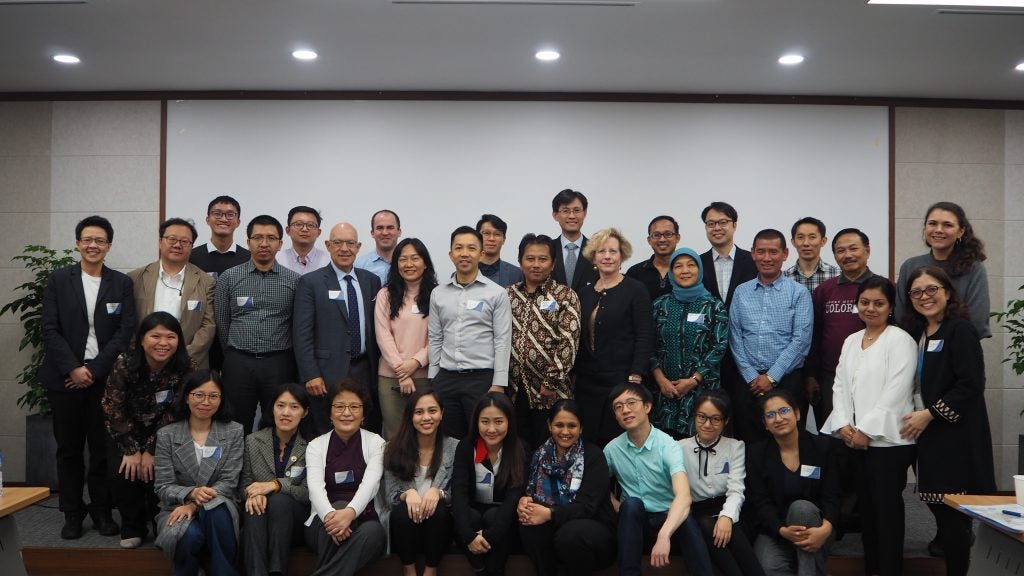
REALISE April Meeting Reflection
1st REALISE Working Group Meeting – Kick-start development of guidance document for using RWD/RWE
To align policies within the region on the use of real-world data/real-world evidence (RWD/RWE) to inform health technology assessment (HTA), an international collaboration among academics and HTA agencies in the region was established: the REAL World Data In ASia for HEalth Technology Assessment in Reimbursement (REALISE) working group.
On 27th Apr 2019, the REALISE working group had the first in-person meeting to gather experiences of using RWD of clinical effectiveness to inform reimbursement decision across 14 health systems. This meeting was attended by 20 representatives from Asia such as Bhutan, China, India, Indonesia, Japan, Malaysia, Philippines, Singapore, South Korea, Taiwan, and Thailand. There were three International Advisory Panel (IAP) members from Canada, United Kingdom as well as Australia and 10 observers from five other health systems. The participants comprised of academia, leaders and technical staff in HTA agencies, as well as clinicians with experience in HTA or clinical trials.
During the meeting, the IAP members shared their experiences on using RWE within their health systems, covering topics such as usage of RWD/ RWE to inform reimbursement decisions, caveats of analysing RWD, establishment of framework for the generation and use of RWD. In particular, the sharing on Canada’s CanREValue collaboration left an impression as it demonstrated how RWD/ RWE can be generated and used in a consistent and integrated manner, to inform reassessment of cancer drugs by recommendation-makers and refinement of cancer funding decision or renegotiation by decision-makers/ payers across the country.
As Asia is at the early stages of using RWD/RWE, the sharing by the Asian representatives touched on the potential sources of RWD in their health systems and the practical challenges faced in generating and using of RWD/RWE (e.g. privacy issue in data linkage and lack of co-operations from industry members). Despite the initial challenges, it is gratifying to also hear about the success cases of using RWE to inform health policy development in some countries.
The sharing sessions were followed by discussion in which many had shared their plans and challenges of using RWD/RWE in their health system in the near future. This stimulated further discussions on potential solutions, with representatives from health systems that are at a more mature stage of using RWD/RWE providing advice due to similar encounters faced. Other topics raised during the discussion included technological and financial limitation for developing countries to use RWD, privacy issue in developed countries, ownership of the data, charges of accessing the data, cost of developing registry and feasibility of collecting RWD in case of multiple indications.
This face-to-face meeting enabled the understanding of the current landscapes of different health systems, and provided opportunities for both learning and seeking out potential collaborations among the different countries. In addition, it had laid the foundation of the non-binding guidance document on RWE currently under development. This guidance document will be beneficial to the health systems in the REALISE working group and other developing health systems in Asia and Africa.


